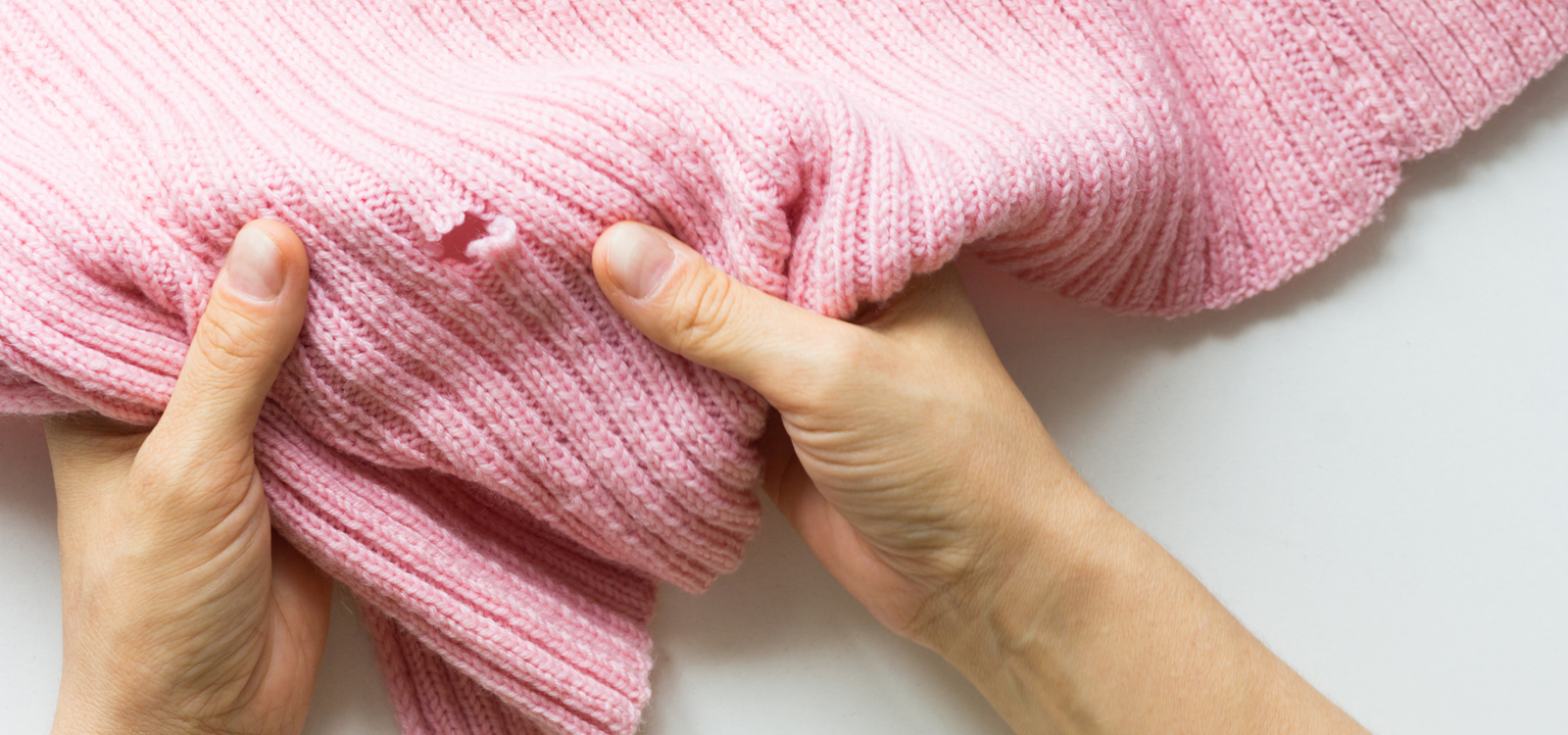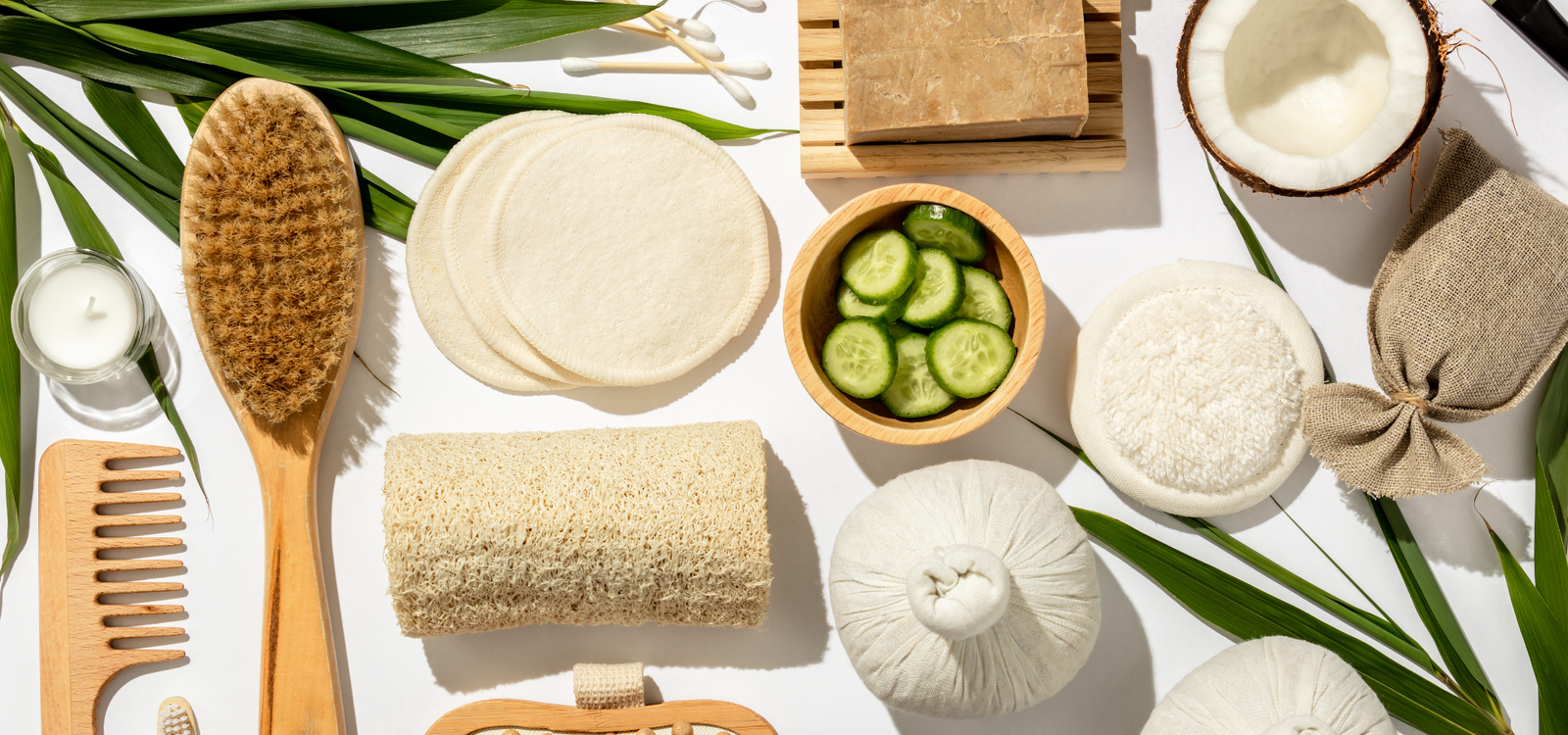Greek Yoghurt and Its Benefits
Greek yoghurt, a staple in Mediterranean diets, is a nutrient-rich dairy product known for its thick, creamy texture and powerful health benefits. Unlike regular yoghurt, it undergoes a straining process that removes much of the whey, resulting in a more concentrated product.
Components of Greek Yoghurt
- Proteins: Greek yoghurt is rich in proteins, providing substantial nutritional value. Proteins aid in skin repair and regeneration.
- Probiotics: These are beneficial bacteria that help maintain gut health and improve digestion. Probiotics also have anti-inflammatory properties which are beneficial for skin care.
- Vitamins and Minerals: Greek yoghurt is a good source of vitamins such as B2 (riboflavin) and B12, as well as minerals like calcium and potassium. These nutrients are essential for maintaining overall skin health.
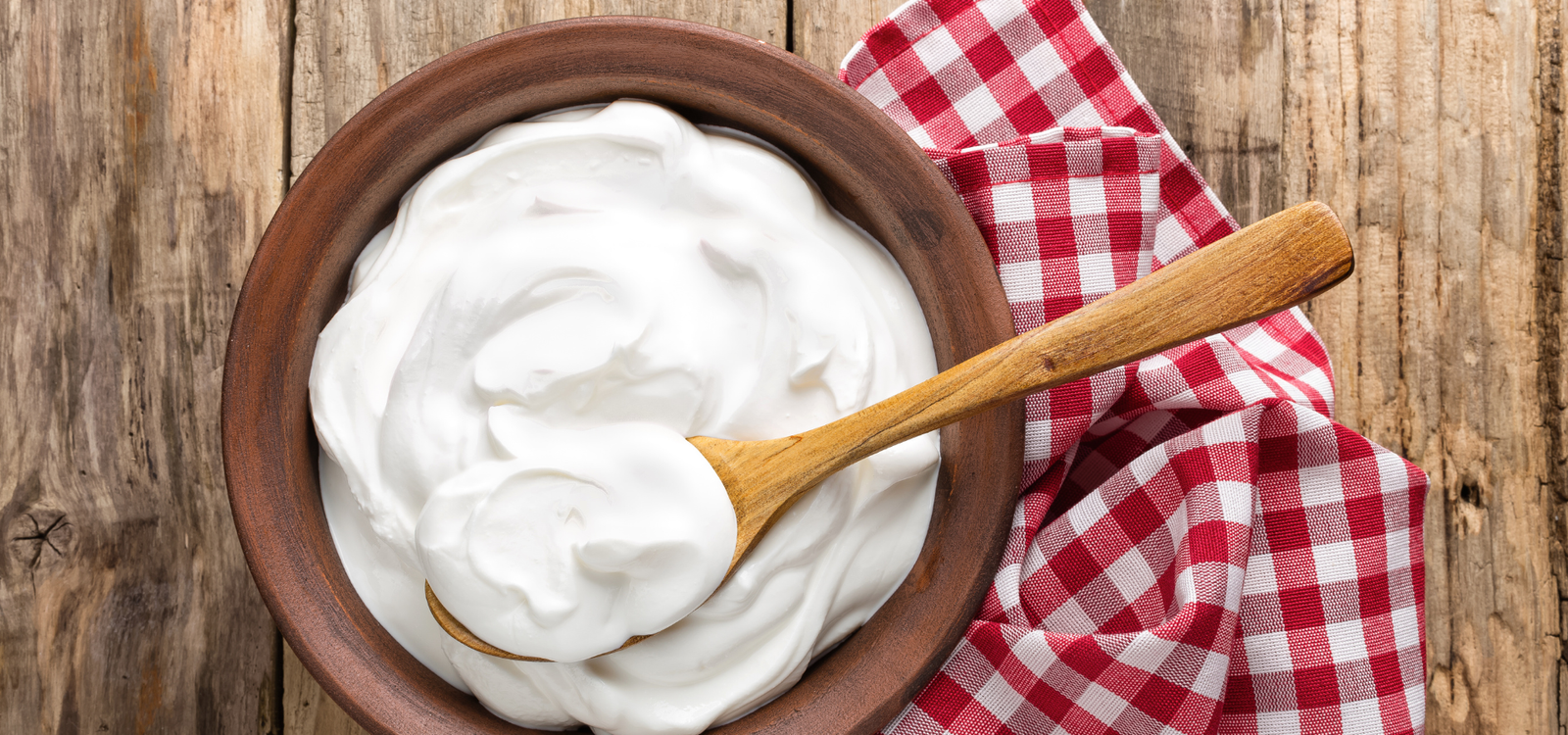
Benefits for Skin Health
Moisturising Properties: The thick consistency of Greek yoghurt provides intense hydration, penetrating deeply into the skin layers. This is particularly beneficial for dry and sunburned skin, which tends to lose moisture quickly.
Soothing Effect: Greek yoghurt contains lactic acid, which has mild exfoliating properties. This helps to soothe irritated skin by gently removing dead skin cells and promoting the growth of new ones.
Anti-inflammatory Properties: Probiotics in Greek yoghurt help to reduce inflammation and redness caused by sunburn. They also support the skin’s natural barrier, enhancing its ability to protect itself.
Cooling Sensation: Applying Greek yoghurt to sunburned skin provides an immediate cooling sensation, offering relief from the burning and itching associated with sunburn.
Healing Promotion: The proteins and essential nutrients found in Greek yoghurt facilitate quicker healing of damaged skin cells, aiding in the recovery process.
Antioxidant Activity: Greek yoghurt contains antioxidants that help combat free radicals, which can cause further skin damage. By neutralising these harmful agents, Greek yoghurt helps maintain healthy skin.
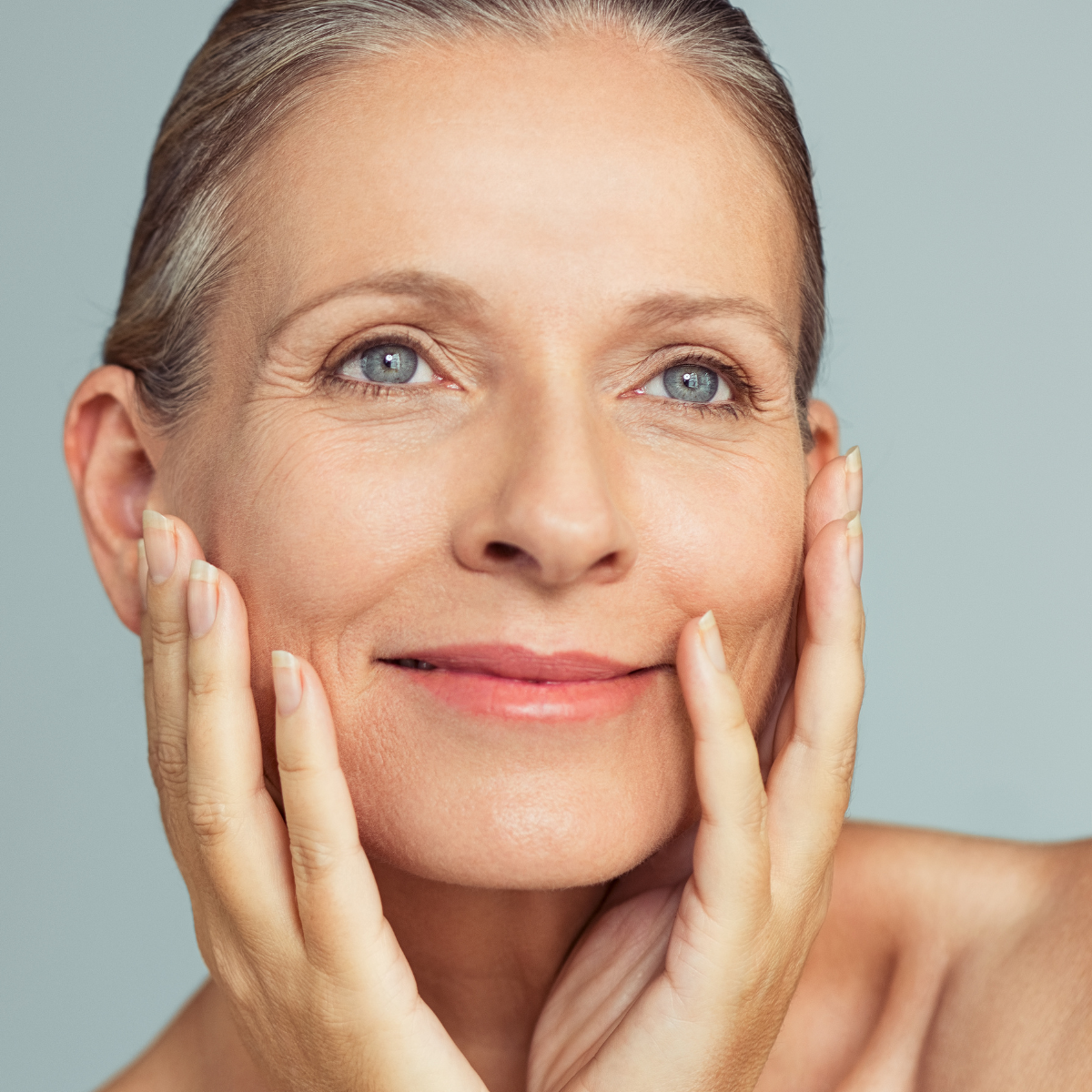
Versatility in Skincare
Greek yoghurt can be used in various skincare routines. It can be applied directly to the skin or mixed with other natural ingredients like honey and oatmeal to enhance its benefits. Its thick consistency makes it easy to apply as a face or body mask, providing both immediate and long-term skin benefits.
Understanding Sunburn and Its Effects on the Skin
Sunburn is a common skin condition resulting from overexposure to ultraviolet (UV) radiation, primarily from the sun. When the skin is exposed to excessive UV rays, it can experience damaging effects that lead to sunburn. UV rays penetrate the skin and cause harm to skin cells because they are a form of radiation. The damage to the skin can be immediate or delayed, often manifesting several hours after exposure.

Effects on the Skin
The effects of sunburn on the skin can vary depending on the severity of the exposure:
Redness: One of the first signs of sunburn is redness, which occurs as the skin’s blood vessels dilate and increase blood flow to the affected area. This is the body’s way of trying to repair the damage caused by UV rays.
Inflammation: The skin may become inflamed, leading to swelling and tenderness. Inflammation is part of the body’s immune response, aiming to heal the damaged tissue.
Pain: Sunburn can be accompanied by pain and discomfort, particularly when touching the affected area. The severity of pain can range from mild to intense, depending on the extent of the burn.
Peeling: As the skin begins to heal, dead cells may shed, causing the skin to peel. This is a natural part of the healing process and signifies the removal of damaged cells. However, if the affected area presents a wound, one should seek medical advice.

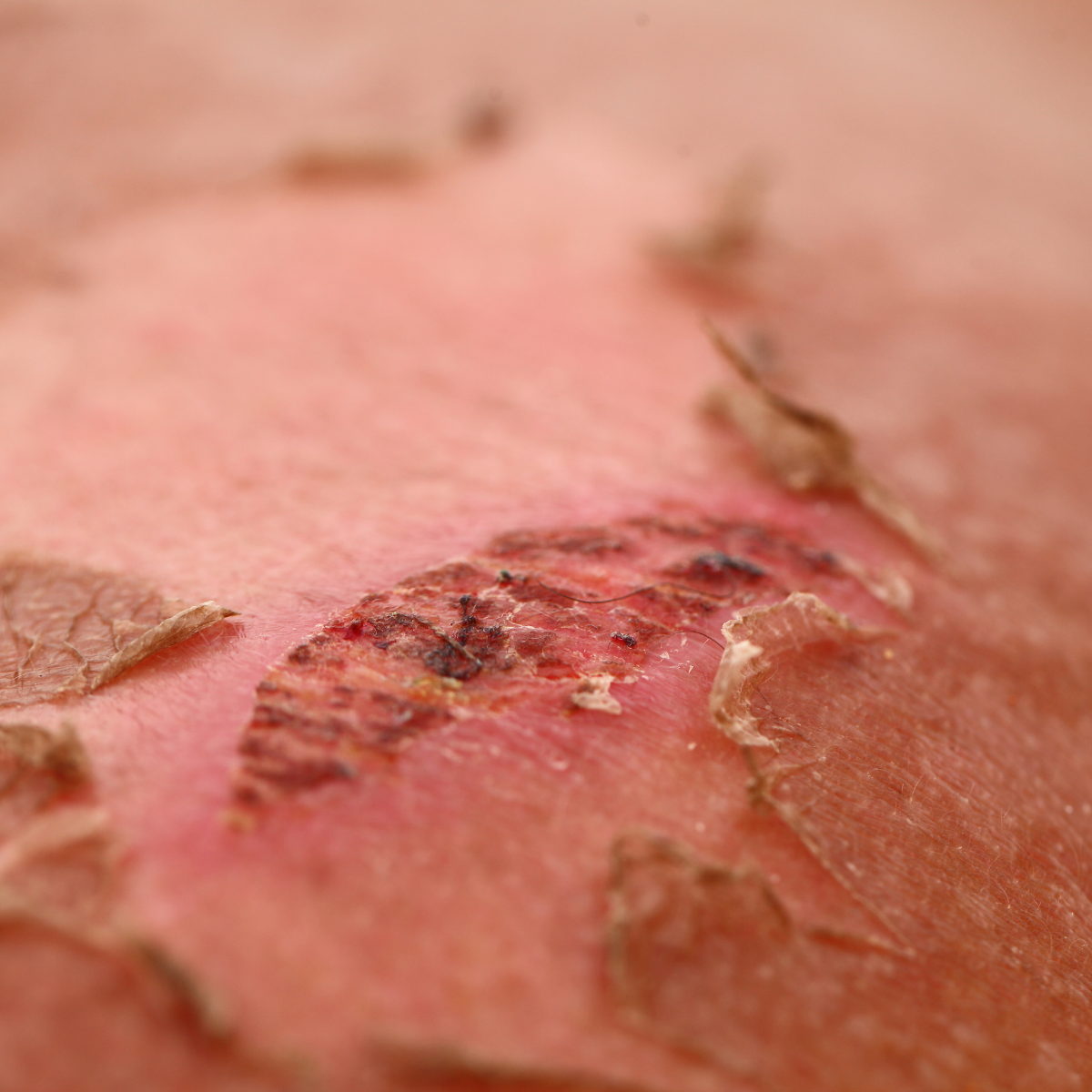
Blistering: Severe sunburn can lead to blistering, where fluid-filled sacs form on the skin’s surface. Blisters provide a protective barrier for the underlying tissue as it heals.
Blisters should not be bursted as this can provoke an infection.
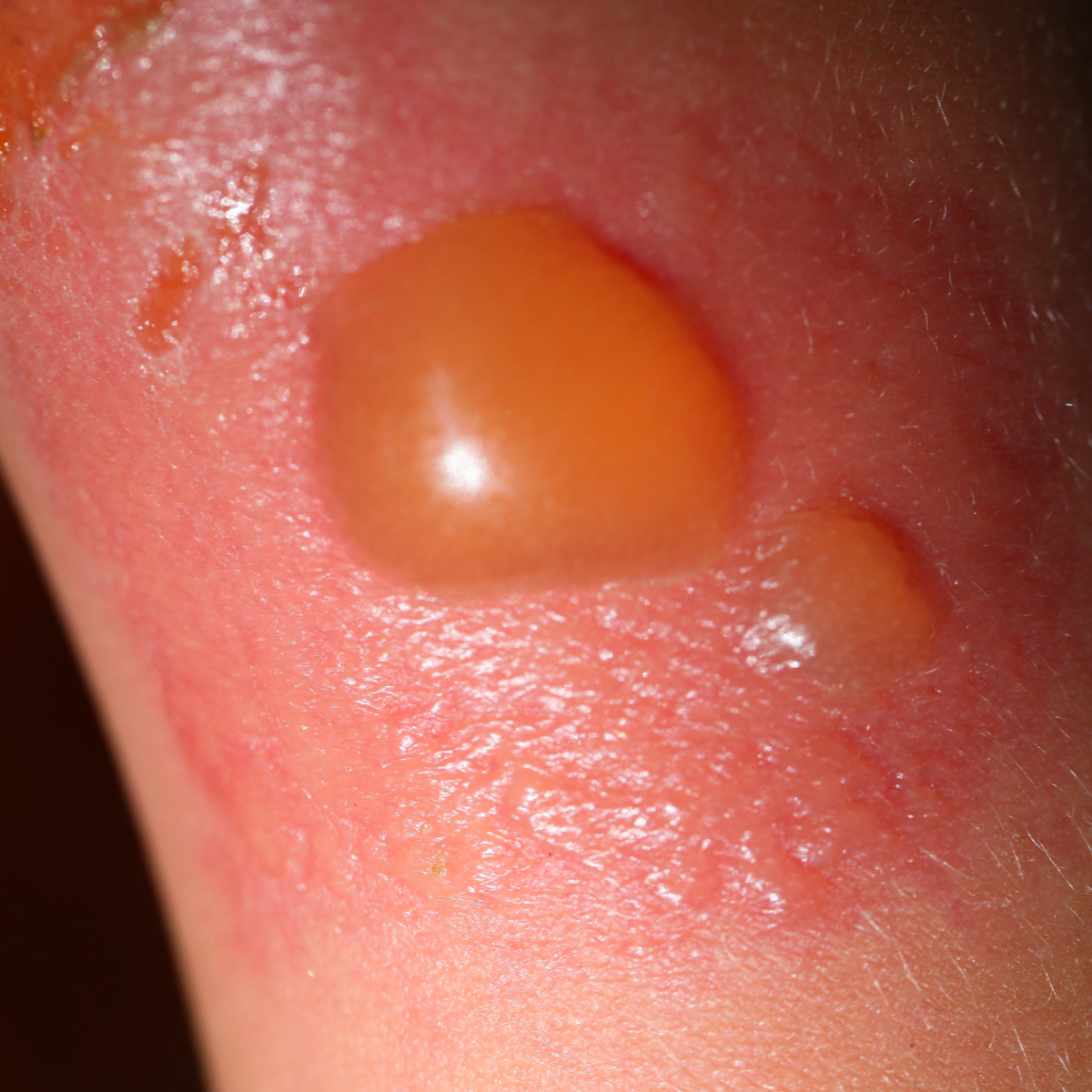
Long-Term Effects
Repeated exposure to UV radiation and sunburns can have long-term effects on the skin:
Premature Ageing: Frequent sunburns can accelerate the ageing process, leading to wrinkles, fine lines, and age spots. UV rays break down collagen and elastin, essential proteins for maintaining the skin’s structure and elasticity.
Increased Cancer Risk: Continuous exposure to UV rays increases the risk of developing skin cancer, including melanoma, the most severe form. UV radiation causes DNA damage in skin cells, leading to mutations and potentially cancerous growths.
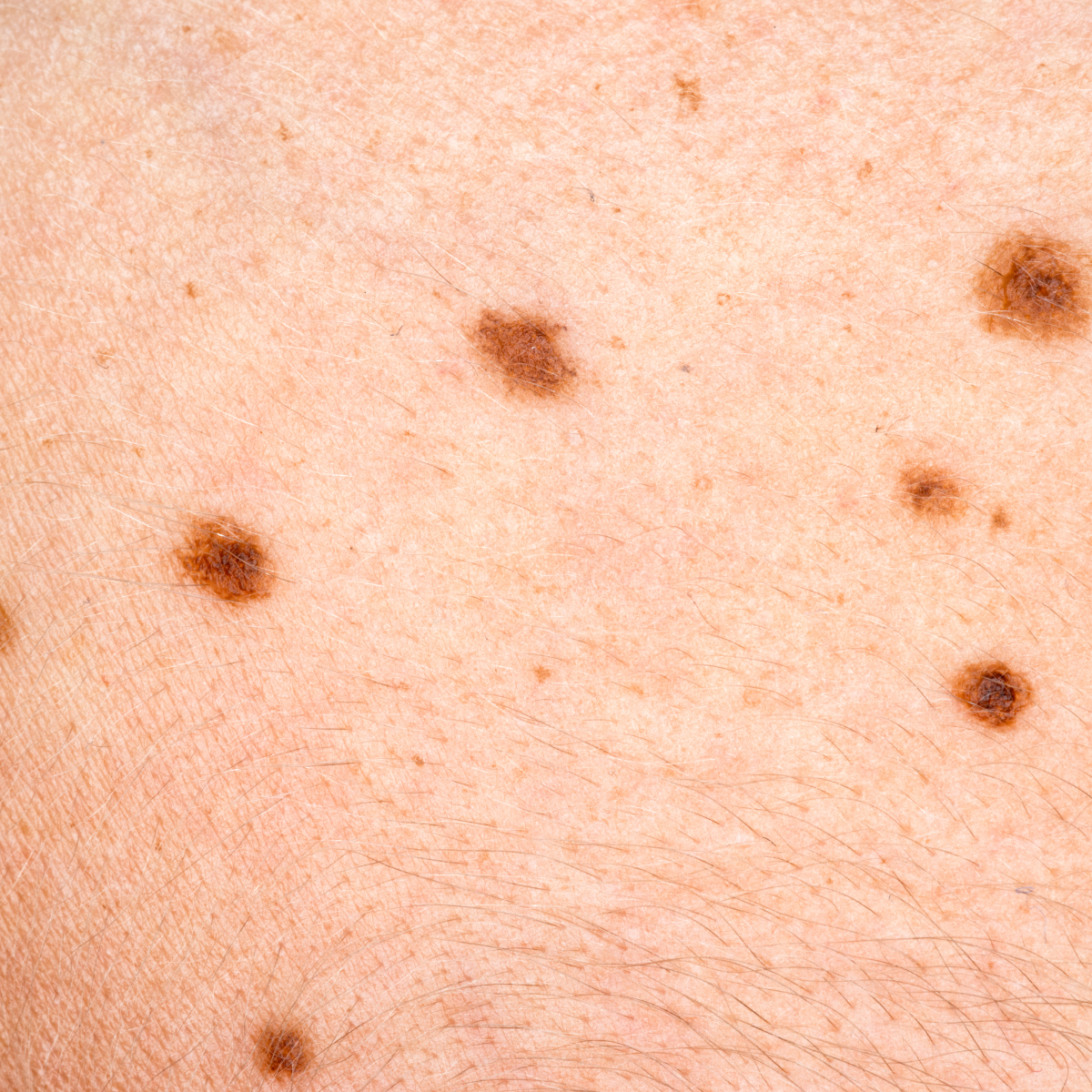
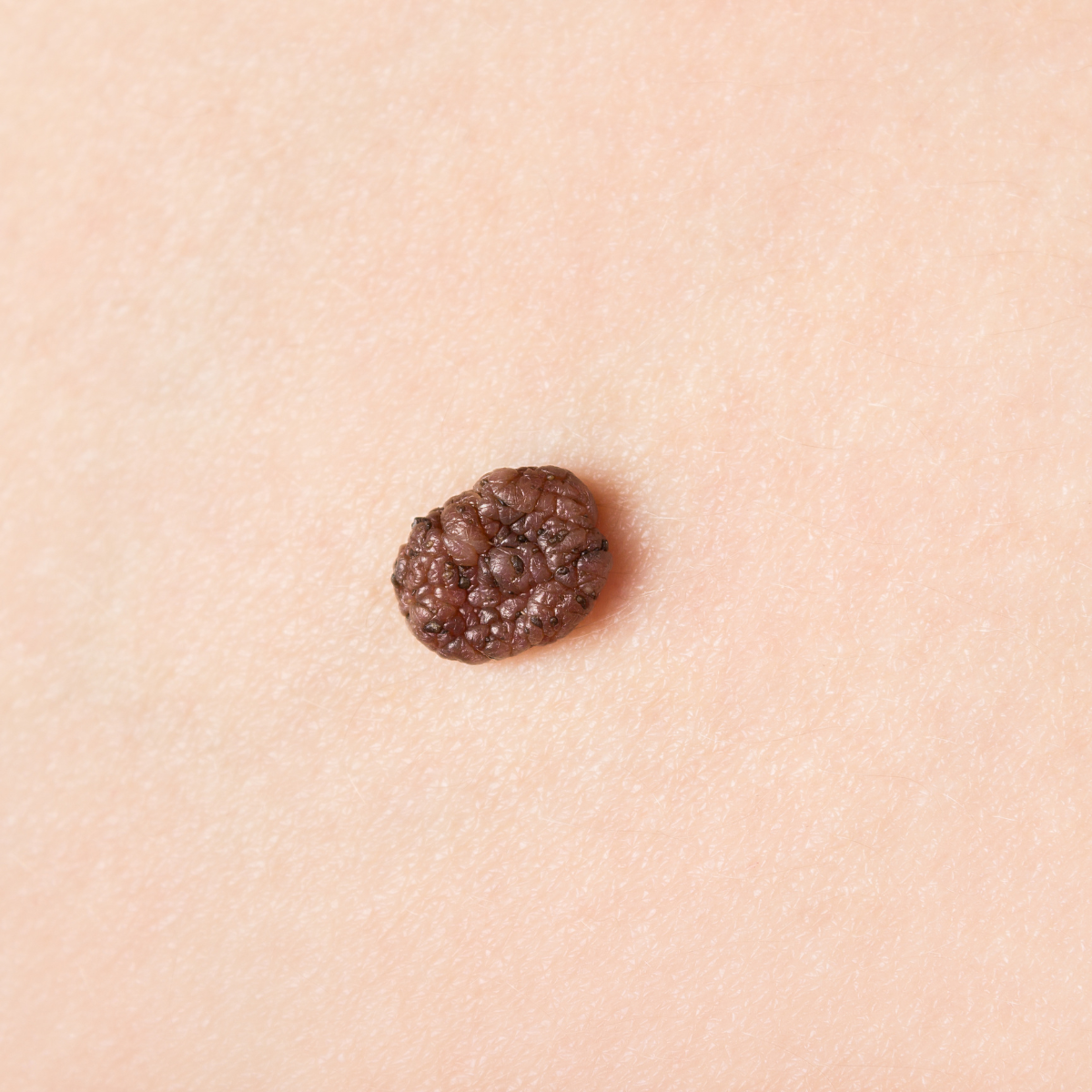
Hyperpigmentation: Sunburn can result in areas of hyperpigmentation, where patches of skin become darker than the surrounding tissue. This is due to the increased production of melanin as the skin attempts to protect itself from further UV damage.
Understanding the effects of sunburn on the skin underscores the importance of sun protection. Taking preventive measures can minimise damage and maintain skin health.
The Role of Greek Yoghurt in Healing Sunburned Skin
Greek yoghurt is renowned for its thick, creamy texture and nutritional benefits. However, its topical application for sunburn relief is not widely known. Greek yoghurt can play a crucial role in soothing and healing sunburned skin, thanks to its unique properties.
Greek yoghurt contains a wealth of nutrients and compounds that benefit the skin:
- Probiotics: Greek yoghurt is rich in probiotics, which help to restore the skin’s natural barrier. This is essential for skin that has been damaged by the sun.
- Lactic Acid: Lactic acid assists in exfoliating the skin gently, removing dead cells, and promoting the growth of new, healthy skin. This can speed up the healing process.
- Proteins and Fats: The proteins and fats present in Greek yoghurt nourish and moisturise damaged skin, reducing dryness and flakiness.
- Zinc: Zinc has anti-inflammatory properties that can reduce redness and swelling associated with sunburn.
- Vitamins and Minerals: The vitamins and minerals in Greek yoghurt, such as B vitamins and calcium, aid in repairing and strengthening the skin.
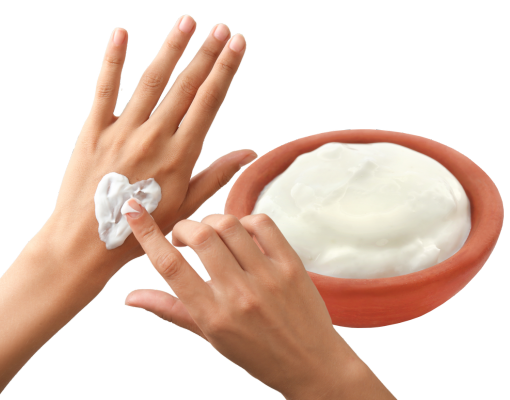
Nutritional Components of Greek Yoghurt That Aid Skin Recovery
Greek yoghurt is not just a staple in diets but a potent remedy for sunburnt skin, thanks to its rich composition of nutrients. This section will dive into the specific components that contribute to skin healing.
Protein
Greek yoghurt contains a high amount of protein, essential for skin repair. Protein aids in cellular regeneration, which is vital when healing damaged skin.
Amino acids: These building blocks of proteins help repair tissues and maintain skin elasticity.
Lactic acid: Found in the whey component of yoghurt, it gently exfoliates dead skin cells, promoting new cell growth.
Probiotics
Probiotics present in Greek yoghurt play a significant role in bolstering skin health.
Lactobacillus: This strain promotes the production of ceramides, lipid molecules critical for maintaining the skin’s natural barrier and moisture retention.
Anti-inflammatory properties: Probiotics help reduce redness and inflammation, alleviating sunburn discomfort.
Vitamins
Several vitamins in Greek yoghurt contribute to its efficacy in treating sunburned skin.
Vitamin B2 (Riboflavin): Helps maintain healthy skin by supporting tissue growth and repair. Vitamin B5 (Pantothenic acid): Accelerates the healing process and reduces the risk of infection. Vitamin D: Boosts skin cell production and repair, enhancing recovery from sunburn.
Minerals
Minerals in Greek yoghurt assist in the rejuvenation of sunburned skin.
Calcium: Plays a role in skin cell regeneration and acts as a mild exfoliant. Zinc: Known for its anti-inflammatory properties, zinc aids in reducing redness and accelerating healing.
Fatty Acids
Fatty acids in Greek yoghurt are crucial for maintaining skin hydration.
Saturated fat: Provides a protective layer, keeping the skin moisturised. Omega-3 and Omega-6 fatty acids: Essential for repairing the skin’s barrier function and reducing inflammation.
Antioxidants
Greek yoghurt is rich in antioxidants that support the skin’s healing process.
Vitamin E: Protects skin cells from oxidative stress. Bioactive peptides: Enhance collagen production, improving skin texture and elasticity.
By incorporating these components, Greek yoghurt offers a comprehensive approach to restoring sunburned skin effectively.
Scientific Studies Supporting the Use of Greek Yoghurt for Sunburn
Anti-Inflammatory Properties
Research conducted by Dr. Anna Feldman at the University of California revealed that Greek yoghurt contains probiotics and lactic acid, which exhibit potent anti-inflammatory properties. These components can help reduce the inflammation seen in sunburned skin. Another study published in the Journal of Dermatological Science found that lactic acid aids in soothing irritation, providing a cooling effect on sunburned areas.
Moisturising Effects
The American Academy of Dermatology highlights that one main reason Greek yoghurt is effective against sunburn is due to its high protein and fat content. These elements work to replenish the skin’s natural barrier, increasing hydration levels. Researchers have found that regular application of Greek yoghurt significantly improves skin moisture compared to standard treatments.
Nutrient-Rich Composition
Greek yoghurt is also rich in vitamins and minerals essential for skin healing. Key nutrients such as vitamin B2, vitamin B12, and zinc play a crucial role in cellular repair and regeneration. A study in Clinical, Cosmetic and Investigational Dermatology showed that zinc facilitates wound healing, making it highly beneficial for sunburn recovery.
Probiotic Benefits
A study by the National Institutes of Health indicates that probiotics in Greek yoghurt support the skin’s microbiome. This positively impacts skin health by balancing harmful and beneficial bacteria, which helps to reduce redness and swelling associated with sunburn. According to the results published in the British Journal of Dermatology, probiotics can modulate the skin’s immune response, aiding in faster recovery from sunburn.
Cooling Sensation
Greek yoghurt’s inherent cooling properties provide immediate relief from the burning sensation caused by sunburn. According to the International Journal of Dermatology, applying cold Greek yoghurt can offer temporary pain relief and decrease the heat emitted from the skin.
Supporting Clinical Data
In 2019, a clinical trial at the University of Athens demonstrated that participants using Greek yoghurt on sunburned skin experienced a 25% faster recovery rate than those using a placebo. The trial’s results substantiate the yoghurt’s role in enhancing the skin repair process.
Moreover, various dermatologists recommend Greek yoghurt as an effective alternative to conventional after-sun lotions. The consensus among these medical professionals points towards the tangible benefits derived from its unique composition, which promotes quick and effective skin restoration.
How to Apply Greek Yoghurt to Sunburned Skin: Step-by-Step Guide
Materials Needed
Greek yoghurt (plain, full-fat) A clean bowl A spoon Soft washcloths or cotton pads Cold water
Step-by-Step Instructions
- Preparation
Retrieve a sufficient amount of plain, full-fat Greek yoghurt from the refrigerator. The cooling effect helps soothe the burn. Scoop the yoghurt into a clean bowl using a spoon. Ensure hands are clean before application to avoid contamination. - Patch Test
Perform a patch test by applying a small amount of yoghurt to a discreet area of the skin. Wait for 15 minutes to check for any adverse reactions. - Initial Cleanse
Gently cleanse the sunburned area with cold water using a soft washcloth or cotton pad. Pat the skin dry with a clean, soft towel. Do not rub, as this can aggravate the burn. - Application
Take a generous amount of the Greek yoghurt from the bowl. Apply it evenly over the sunburned area. Use gentle, broad strokes to avoid causing further irritation. Ensure a thick layer covers the entire affected area. - Relaxation Period
Leave the yoghurt on the skin for 15 to 20 minutes. This allows the yoghurt to penetrate and provide relief. During this period, the yoghurt’s probiotics work to restore the skin’s natural barrier, while its lactic acid offers mild exfoliation. - Removal
Rinse of the yoghurt with cold water. Use clean, soft washcloths or cotton pads to ensure all remnants are washed away. Pat the skin dry gently with a clean towel. - Aftercare
Apply a gentle, alcohol-free hydrating lotion if desired. Avoid direct sunlight on the treated area to prevent further damage. Repeat this process up to twice daily until the sunburn heals.
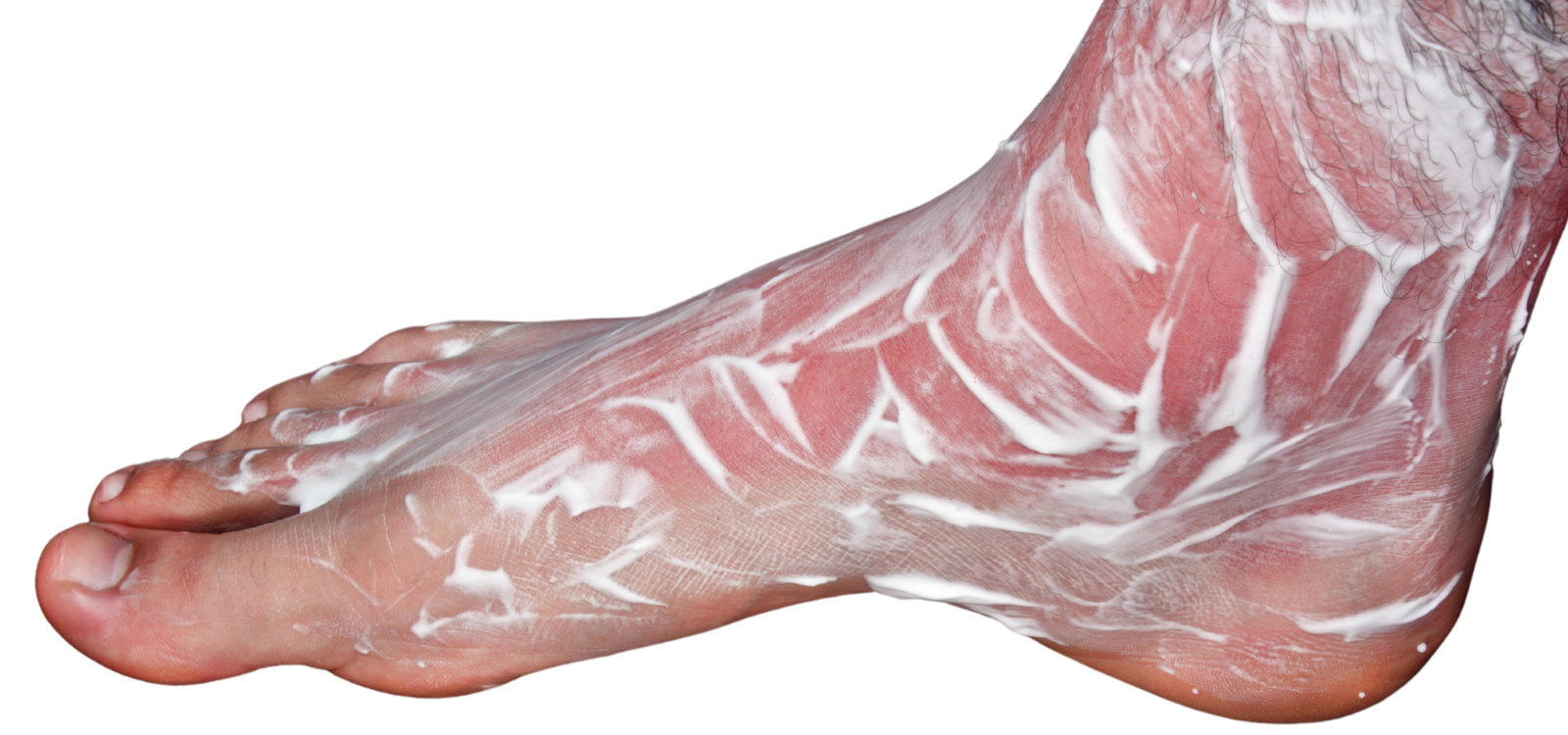
Tips for Best Results
Opt for plain, full-fat Greek yoghurt without added sugars or flavours. Don’t feel tempted to add additional ingredients as these may enhance the possibility of infection.
Always consult a healthcare professional if the sunburn is severe or if there are signs of infection, such as pus or increasing redness.
Precautions and Things to Avoid When Using Greek Yoghurt on Sunburn

Applying Greek yoghurt to sunburned skin can be soothing and beneficial, but it is crucial to follow certain precautions to avoid potential risks and ensure effective healing.
- Choose Plain, Unsweetened Greek Yoghurt: Flavoured or sweetened yoghurt may contain additives and sugars that can irritate the skin. Always opt for plain, unsweetened Greek yoghurt for the best results.
- Check for Allergies: Before applying Greek yoghurt to the burned area, check for any allergies to dairy products. Conducting a patch test can help determine if the skin reacts adversely to yoghurt.
- Avoid Mixing with Other Ingredients: While some may be tempted to add ingredients like honey or fruit for added benefits, it is safer to use Greek yoghurt alone. Other ingredients can potentially irritate or exacerbate the sunburn.
- Do Not Apply to Open Wounds: Ensure that the sunburn does not have any open blisters or cuts. Applying yoghurt to broken skin can increase the risk of infection and slow down the healing process.
- Avoid Prolonged Exposure: While Greek yoghurt can be beneficial, it should not be left on the skin for extended periods. Limit application time to 15-20 minutes, and rinse off thoroughly with cool water.
- Store Properly: Always use fresh Greek yoghurt and avoid using any that has been left out of the refrigerator for extended periods. Spoiled yoghurt can harbour bacteria that may cause infections.
- Observe Skin Reactions: After application, monitor the skin for any adverse reactions such as increased redness, itching, or irritation. Discontinue use if any of these symptoms occur.
- Keep Out of Direct Sunlight: After applying and removing Greek yoghurt, avoid direct sunlight to allow the skin to heal properly and prevent further damage.
Using Greek yoghurt on sunburn is beneficial but should be approached with care and proper knowledge
By following these precautions, one can ensure that using Greek yoghurt on sunburned skin is safe and effective, promoting quicker relief and recovery.
Comparing Greek Yoghurt with Other Home Remedies for Sunburn
When evaluating Greek yoghurt in contrast to other home remedies for sunburn, various aspects such as ease of use, effectiveness, and soothing properties are considered. Here’s a detailed comparison:
Aloe Vera Gel
Application: Aloe vera gel is widely known for its cooling and soothing effects. It is directly extracted from the aloe vera plant or purchased as a commercial gel.
Properties: Contains anti-inflammatory properties and promotes healing.
Effectiveness: Provides almost immediate relief from sunburn pain and helps reduce inflammation.
Usage: Easy to apply and non-messy.
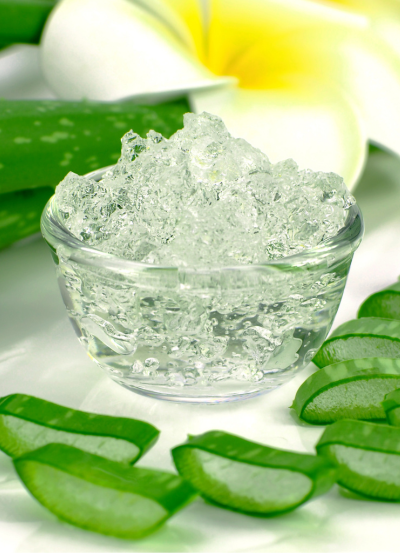
Cool Milk Compresses
Application: Cool milk compresses involve soaking a cloth in cold milk and applying it to the sunburned skin.
Properties: The lactic acid in milk helps in skin exfoliation and soothing.
Effectiveness: Helps reduce redness and swelling but can be less effective than Greek yoghurt or aloe vera for severe burns.
Usage: Requires preparation and can be messy.
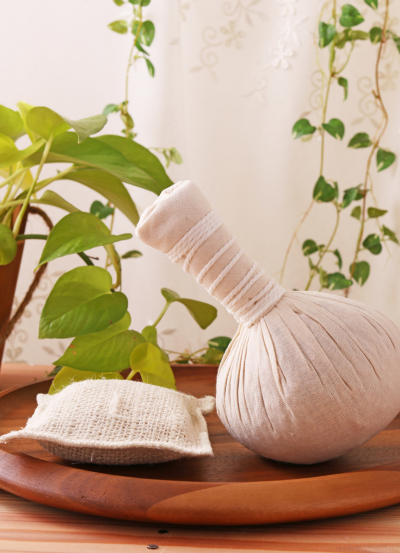
Coconut Oil
Application: Applying coconut oil to sunburned skin can create a soothing barrier and moisturise the skin.
Properties: Has anti-inflammatory and moisturising properties.
Effectiveness: Not advisable for immediate relief, as it can trap heat. Beneficial for the healing phase after the initial burn has cooled.
Usage: Easy to apply but should be used cautiously.
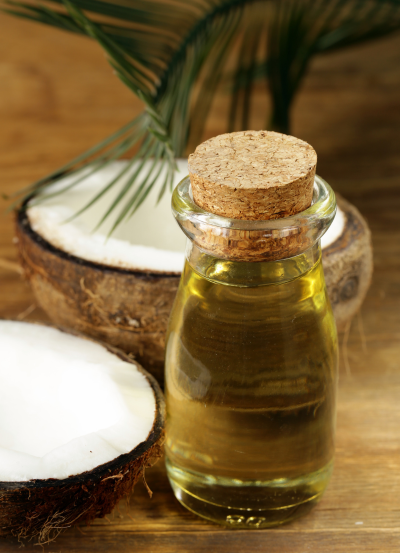
Vinegar Compresses
Application: Applying coconut oil to sunburned skin can create a soothing barrier and moisturise the skin.
Properties: Has anti-inflammatory and moisturising properties.
Effectiveness: Not advisable for immediate relief, as it can trap heat. Beneficial for the healing phase after the initial burn has cooled.
Usage: Easy to apply but should be used cautiously.
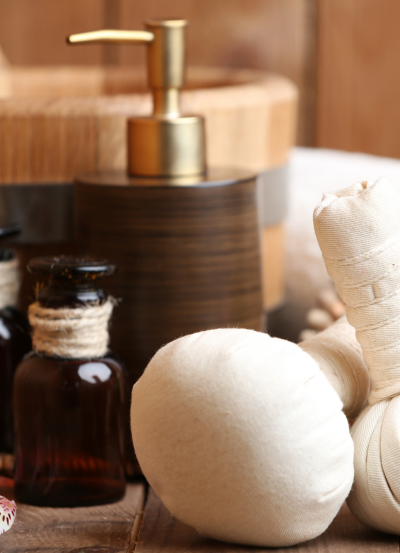
Cucumber Slices
Application: Sliced cucumbers can be placed directly on the sunburned areas.
Properties: Cucumbers have soothing, hydrating, and antioxidant properties.
Effectiveness: Provides temporary cooling and hydration; suitable for mild sunburn.
Usage: Simple and non-messy but less effective for deeper burns.

Greek Yoghurt
Application: Applied directly to the skin as a cooling mask.
Properties: Contains probiotics, proteins, and lactic acid with anti-inflammatory and cooling properties.
Effectiveness: Provides rapid relief, cools down the skin, and helps in hydration.
Usage: Easy to apply, though it can be slightly messy. Suitable for mild to moderately severe sunburns.

Greek yoghurt stands out due to its blend of soothing, hydrating, and anti-inflammatory properties, making it a versatile option among home remedies for sunburn relief.
Frequently Asked Questions About Greek Yoghurt and Sunburn
How does Greek yoghurt help with sunburn?
Greek yoghurt contains probiotics and proteins that can help reduce inflammation. The cooling effect of yoghurt provides instant relief from the burning sensation. It also contains lactic acid, which helps to exfoliate the skin gently, promoting the regeneration of new skin cells.
What is the best way to apply Greek yoghurt to sunburned skin?
Check the “Step-by-Step” section above.
How often can one use Greek yoghurt on sunburned skin?
It is generally safe to apply Greek yoghurt 2–3 times per day or as needed for relief. Consistent application will help maximize the soothing and hydrating benefits.
Are there any side effects to using Greek yoghurt on sunburn?
Most people tolerate Greek yoghurt well, but those with a dairy allergy should avoid this remedy. Conduct a patch test on a small area of the skin to ensure no adverse reactions occur. If you experience redness, itching, or irritation, discontinue use immediately. Seek medical advice.
Can Greek yoghurt be mixed with other ingredients for enhanced effects?
Yes, Greek yoghurt can be mixed with the following ingredients, however it is discouraged in cases of sunburn as it may provoke an infectious reaction:
Honey: Adds extra hydration and has antibacterial properties.
Aloe Vera: Further soothes and cools the skin.
Cucumber juice: Adds additional cooling effects.
When should one consult a doctor instead of using Greek yoghurt for sunburn?
While Greek yoghurt can provide temporary relief, consult a healthcare professional if:
The sunburn covers a large area of the body or is blistering. There are signs of heatstroke such as fever, chills, or nausea. The pain is severe or does not improve within a few days.
Is it important to use plain Greek yoghurt?
Yes, plain Greek yoghurt is recommended. Flavoured or sweetened varieties can contain additives that may irritate the skin and diminish the beneficial effects.
Can Greek yoghurt be used on children?
Greek yoghurt can be safe for children but it’s vital to perform a patch test to ensure there’s no adverse reaction. Always use under adult supervision and avoid applying to broken skin or areas with severe sunburn.
Conclusion: The Lasting Impact of Greek Yoghurt on Skin Health and Recovery
The utilisation of Greek yoghurt for skin health offers multiple benefits, especially for the recovery of sunburned skin. Its unique composition, including probiotics, lactic acid, and various vitamins, can serve as an effective treatment and promote long-term skin health.
Benefits to Skin Health:
Probiotics – Greek yoghurt contains beneficial bacteria that help balance the skin’s microbiome, reducing inflammation and supporting the skin’s natural healing process.
Lactic Acid – Acts as a gentle exfoliant, removing dead skin cells and promoting new cell growth, which is crucial for healing sunburned skin.
Vitamins and Minerals – Rich in vitamins B, B2, and Zinc, Greek yoghurt helps to hydrate the skin, reduce redness, and speed up the healing process.
Application Techniques:
Direct Application – A cold, thick layer of Greek yoghurt can be applied directly to the affected area. This provides immediate cooling relief and delivers essential nutrients directly to the skin.
Yoghurt Masks – Combining Greek yoghurt with other soothing ingredients like honey or aloe vera can enhance its healing properties.
Daily Use – Incorporating Greek yoghurt into a regular skincare routine can help to maintain healthy skin and prevent future damage.
Long-term Benefits:
Enhanced Skin Barrier – Regular use strengthens the skin barrier, making it more resilient against environmental stressors.
Hydration – Greek yoghurt is highly moisturising and helps maintain the skin’s natural moisture balance.
Reduced Inflammation – Its anti-inflammatory properties can help calm irritated skin, making it less prone to flare-ups and redness.
Anti-ageing – Continuous use can reduce the appearance of fine lines and wrinkles, contributing to a more youthful complexion over time.
Scientific Validation:
Studies and Research – Research supports the efficacy of probiotics in skincare. Various studies indicate that probiotics and lactic acid, found abundantly in Greek yoghurt, are beneficial for skin repair and maintenance.
Dermatological Approvals – Many dermatologists recommend Greek yoghurt for its natural soothing and healing properties, considering it a safe home remedy for sunburn and overall skin health.
Cost-Effective Solution:
Affordability – Compared to high-end dermatological treatments, Greek yoghurt offers an inexpensive alternative without compromising effectiveness.
Accessibility – Easily available in most grocery stores, it provides a convenient and readily accessible treatment option.
The lasting impacts of Greek yoghurt on skin health and recovery highlight its significance as a beneficial treatment plan for sunburned skin and an effective addition to any skincare regimen.




